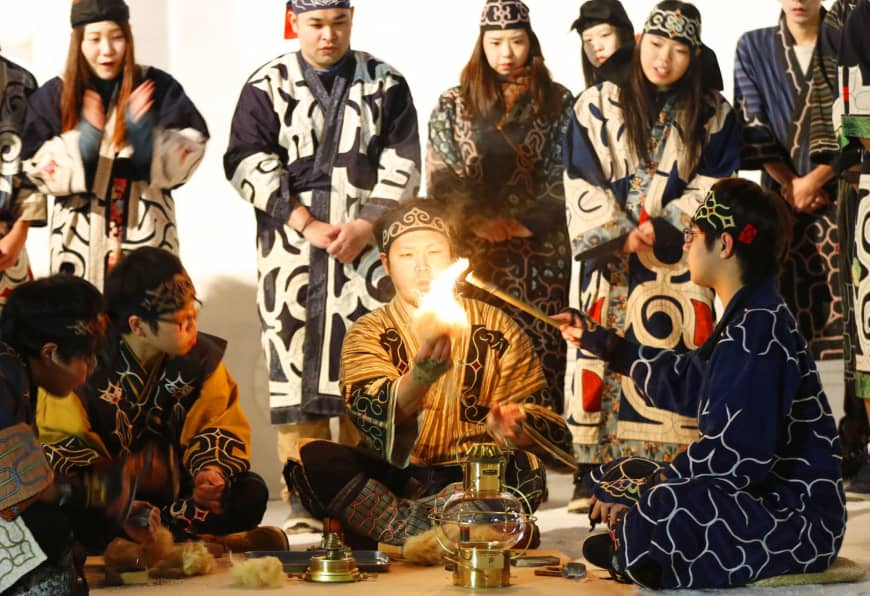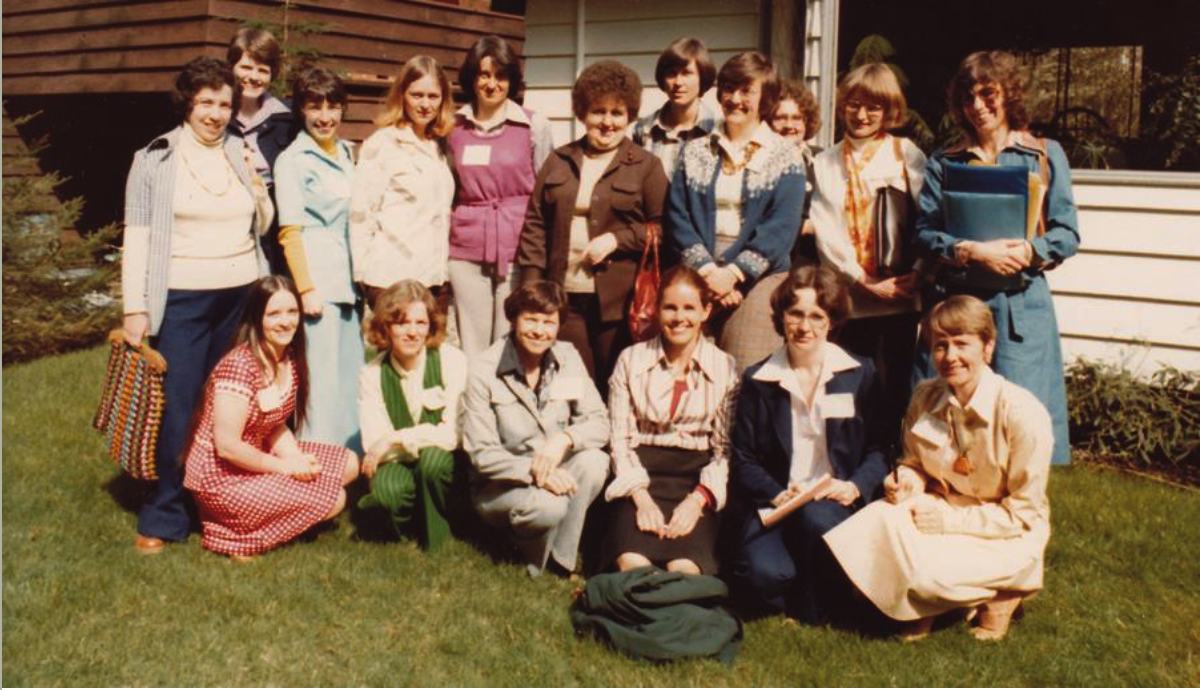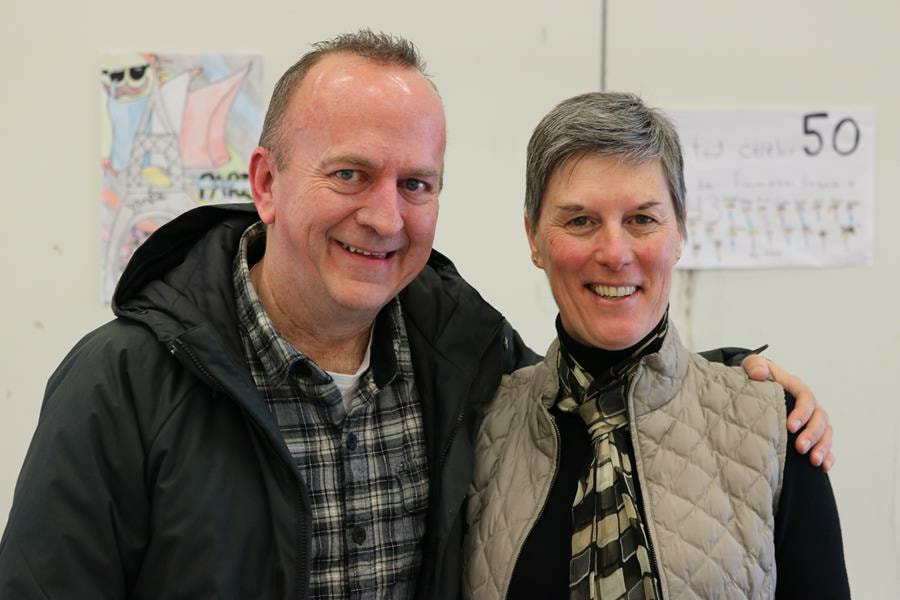|
Copied from www.japantimes.co.jp/news/2019/02/15/national/japan-recognize-indigenous-ainu-people-first-time/#.XGtiyS3MzOR
The government approved a bill Friday to recognize the country’s ethnic Ainu minority as an “indigenous” people for the first time, after decades of discrimination against the group. The Ainu people — many of whom live in northern Hokkaido — have long suffered the effects of a policy of forced assimilation. While discrimination has receded gradually, income and education gaps with the rest of Japan persist. “It is important to protect the honor and dignity of the Ainu people and to hand those down to the next generation to realize a vibrant society with diverse values,” top government spokesman Yoshihide Suga told reporters. “Today we made a Cabinet decision on a bill to proceed with policies to preserve the Ainu people’s pride.” The bill is the first to recognize the Ainu as “indigenous people” and calls for the government to make “forward-looking policies,” including measures to support communities and boost local economies and tourism. Ainu have lived for centuries on Japan’s northernmost main island of Hokkaido, as well as nearby areas including Sakhalin and the Kuril Islands. They struggled to pass down their language and culture after the Japanese government implemented an assimilation policy beginning in the Meiji Era (1868-1912), as Japan was modernizing. The Ainu traditionally observed an animist faith, with men wearing full beards and women adorning themselves with facial tattoos before marriage. But like many indigenous people around the world, most of Japan’s Ainu have lost touch with their traditional lifestyle after decades of forced assimilation. The Ainu population is estimated to be at least 12,300, according to a 2017 survey, but the real figure is unknown as many have integrated into mainstream society and some have hidden their cultural roots. In 1997, a law was enacted aimed at preserving Ainu culture and guaranteeing their human rights, about 100 years after the government introduced the assimilation policy. It was the first legislation acknowledging the existence of an ethnic minority in Japan, but stopped short of saying the Ainu are indigenous. The new bill states its purpose is to “realize a society where the Ainu people can live with their ethnic pride, which will be respected” by others. The government will subsidize projects aimed at promoting Ainu culture and organized by local municipalities. The law would also simplify procedures for Ainu to get permission from authorities to collect timber from national forests for their rituals, and to catch salmon in rivers in a traditional way. In addition to the new law, the central government also plans to open a national Ainu museum and park in the Hokkaido town of Shiraoi in April 2020. In 2007, the United Nations General Assembly adopted a declaration on the rights of indigenous people, asking each country to take legislative steps to protect their rights. Japan was among the countries that supported the declaration. “It is the first step for ensuring equality under the law,” Mikiko Maruko, who represents a group of Ainu people in eastern Japan near Tokyo, said. “There are lots of things to be done, for example, creating a scholarship for families who struggle to send their children to high schools,” she added, a system currently only available to Ainu in Hokkaido. “It is a major step forward on policies towards the Ainu people,” said Masashi Nagaura, chief of the Ainu policy bureau of the Hokkaido Prefectural Government that has spearheaded policies for the ethnic minority.
0 Comments
The BC Teachers’ Federation (BCTF) is seeking four public school teachers to participate as BCTF representatives to a Ministry of Education committee tasked with updating the Language Template for use at Grades 5–12. In addition to public school teachers, the Ministry may appoint administrators and educators from independent schools to this project.
To continue to support the implementation of the K–12 curriculum, the Ministry of Education would like to update the Language Template for use at Grades 5–12 to further support language learning opportunities in the province. For this work, the Ministry will assemble a small team of teachers. In addition, the Ministry will be seeking advice from the team on processes for use, review, and revision of the Language Template. This committee will meet in Victoria on March 6 and 7, 2019. TTOC costs and travel expenses for committee members will be covered by the Ministry, and any work time required outside of the meetings will be compensated according to government guidelines. To view the posting and download the application form, visit: http://www.bctf.ca/opportunities/MinistryCommittees.aspx The deadline for applications is Friday, February 15, 2019 at 5:00 pm. Late applications will not be accepted. Applications must be emailed to [email protected] or alternatively, they can be faxed to the Professional and Social Issues Division at the BCTF at 604-871-2286. Adapted from: https://cpf.cmail20.com/t/ViewEmail/j/7661389A782E4C0A2540EF23F30FEDED/2540670FCE52AB973EDEEDC46EB9B960 VICTORIA - Students are joining in French immersion Celebration Week events from Feb. 4-10, 2019, marking 50 years of the education program helping students in B.C. to become bilingual. “As we celebrate 50 years of French immersion in the province, let’s reflect upon how incredibly positive it is that so many B.C. families see the benefits of bilingualism, and that French immersion is growing tremendously in popularity,” said Rob Fleming, Minister of Education. “This week is a great chance to shine a bright light on the educators and school staff who are creating innovative French language programs that empower kids throughout British Columbia.” Learning French can connect kids to Franco Canadian culture and enriches travel experiences to countries where French is spoken. Studies show bilingualism has a positive impact on children’s intellectual development, giving them a better aptitude for learning new concepts, problem solving and multi-tasking. Being bilingual also opens more job opportunities. “With the growing popularity of French Immersion, it becomes even more important to have programs and services available in the province for people who speak French,” said Adrian Dix, Minister Responsible for Francophone Affairs in B.C. “It is very gratifying to me to know that French language and culture in our Province are strong and continue to flourish in large part because of our French Immersion students, teachers and families.” “We want to thank all the parents and educators who have given so many hours over the years to promoting and supporting bilingualism in communities all around the province,” said Glyn Lewis, executive director of the Canadian Parents for French – B.C. & Yukon. “Thanks in large part to their efforts, hundreds of thousands of young British Columbians have been enriched over the years by learning our official languages. What an incredible milestone to celebrate!” Students, teachers and families throughout the province will participate in French-inspired events organized by the Canadian Parents for French. Many schools will host events, and some are open to the public, including:
Quick Facts:
 The extremely popular Explore program has expanded! There is now a three-week option for students aged 13-15 to participate in this enriching immersion experience all in French at one of three sites: Jonquière, Que., La Pocatière, Que., and Moncton, New Brunswick. There is a registration fee of $275 and students pay their return transportation to the site. Participants in Explore can receive funding that covers tuition fees for the program, instructional materials, meals and accommodations, workshops, and other activities. The program will be offered twice in 2019: July 1 to 22 and July 22 - August 12. Visit the website myexplore.ca and choose the youth option for more details. Students need to have completed their application by February 15, 2019.  Tuesday, February 5th, 2019 marks the first day of the year of the Pig, according to the traditional Chinese calendar. According to the Chinese astrology, 2019 is a great year to make money, and a good year to invest! 2019 is going to be full of joy, a year of friendship and love for all the zodiac signs; an auspicious year because the Pig attracts success in all the spheres of life. Just in time for the big day, your French students can learn and discuss the cultural similarities and differences with these activity worksheets we have created. Gong hei fat choy!
|
How to post:BCATML's Executive members can add news items here. Please email BCATML president at [email protected] or your Language Rep with a news item or pro-d opportunity that you would like to share. Archives
August 2023
Categories |
||||||









 RSS Feed
RSS Feed

